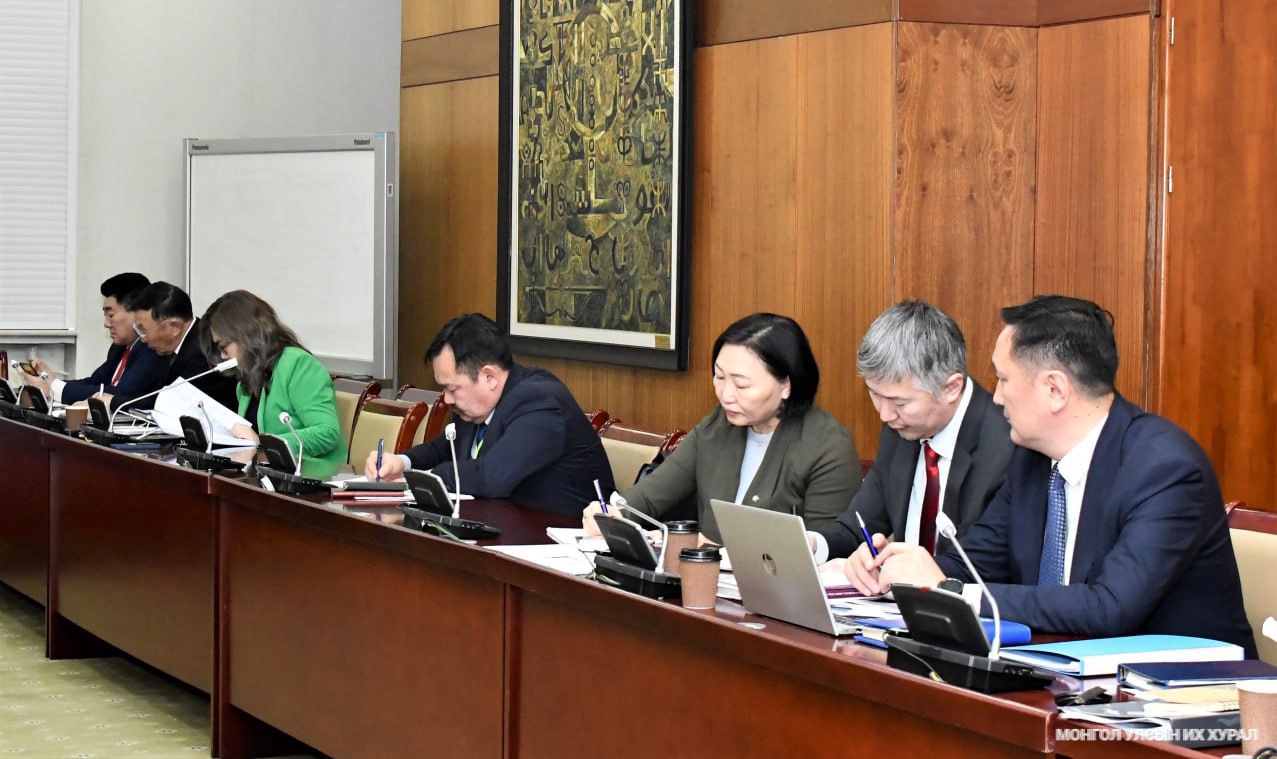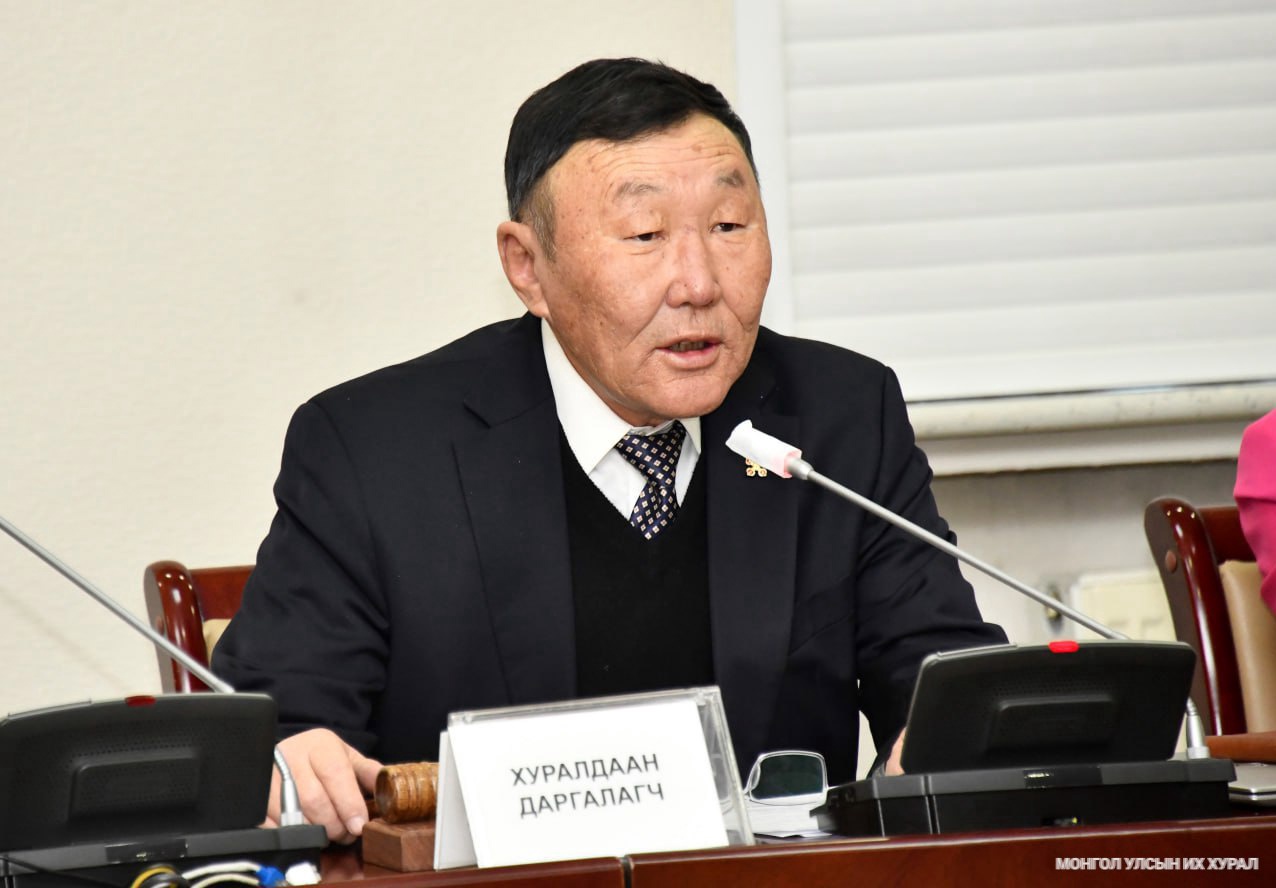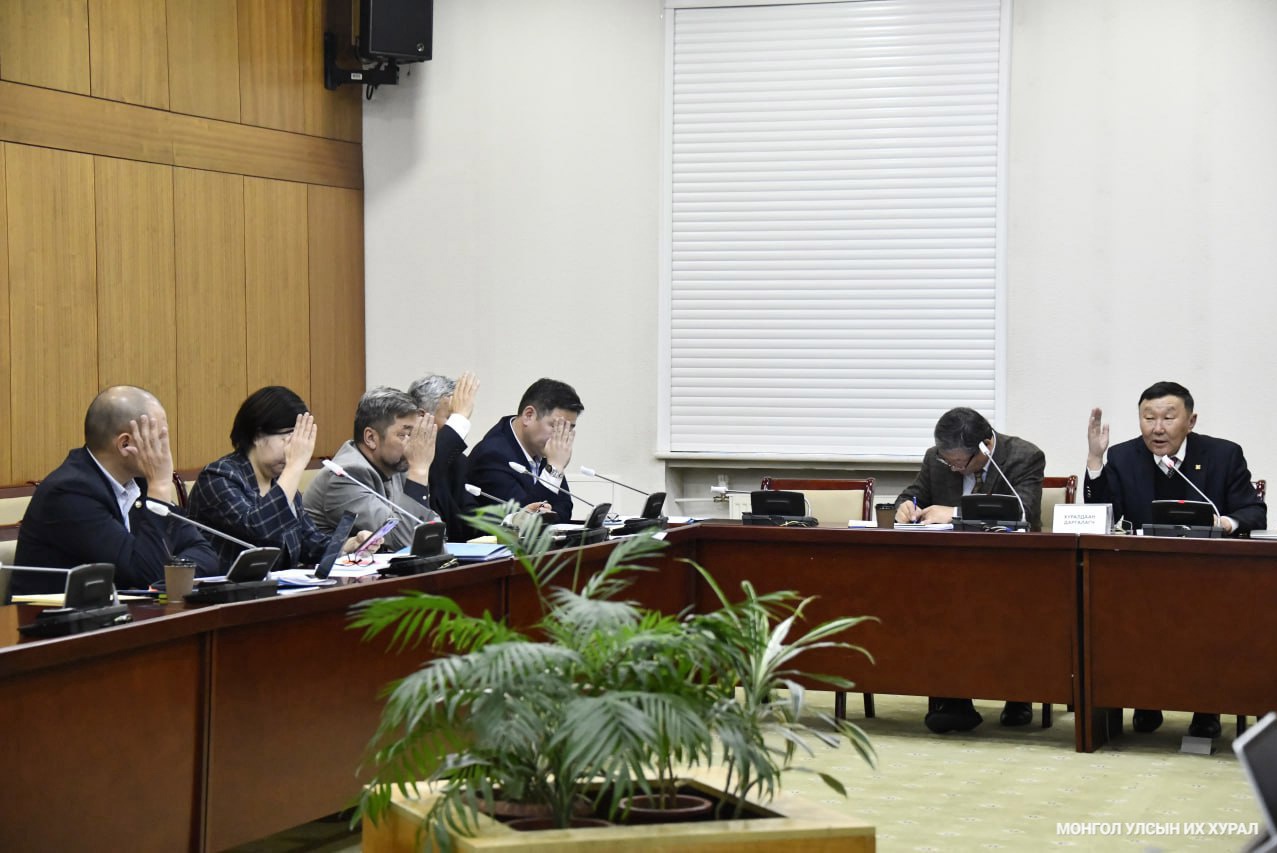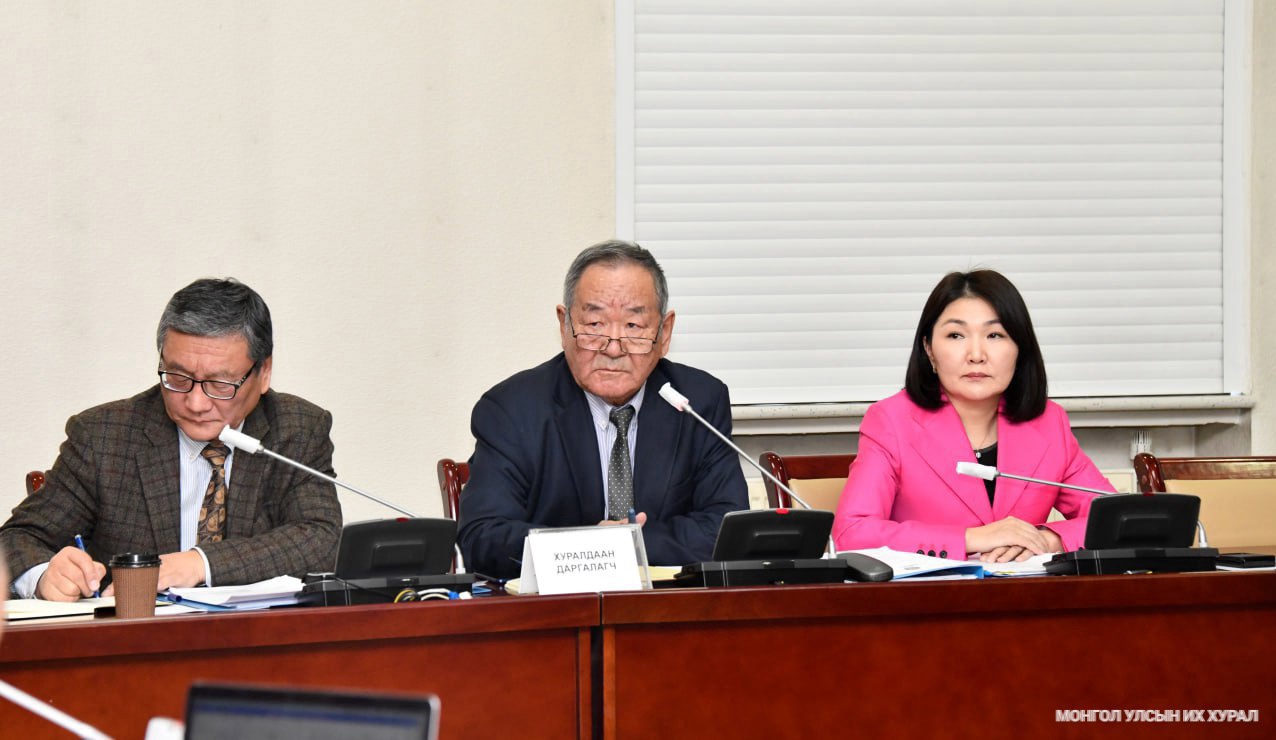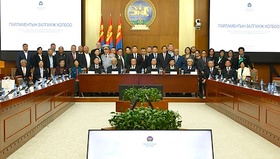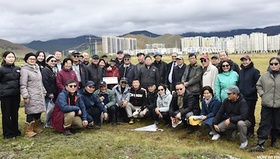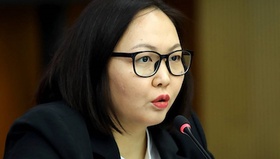Today, on January 09, 2023, the Deliberative Council, responsible for organization and management of the deliberative polling on "Let's deliberate and decide", held its first meeting. The meeting was organized by the technical group of the Deliberative Council and was chaired by the most senior member of the Council economist Mr. U.Gankhuyag, who was nominated by the Union of Democratic Constitutional Legislators. The Chairperson of the meeting Mr. U.Gankhuyag introduced the agenda of the meeting including the election of a Chair of the Deliberative Council, approval of the rules of procedure for the meetings and others.
The process of nomination of Chair of the Council began, according to the Article 9.2 of the Law on Deliberative Polling states "Chair shall be nominated from and by members of the Deliberative Council and elected through discussion".
Mr. D.Moondoi, radio electronics engineer who was nominated as an individual candidate, Mr. O.Munkhsaikhan, a researcher who was nominated by the Institute of Constitutional Law of the Mongolian National University nominated the Chair of the Council as scholar Mr. G.Chuluunbaatar, who was nominated by the National Academy of Sciences. Teacher and columnist Mr. G.Galbadrach and economist B.Otgontugs nominated B. Otgontugs.
The members of the Deliberative Council discussed the candidates and elected by majority vote scholar Mr. G.Chuluunbaatar as the Chair. On this occasion, the Deliberative Council decided to appoint a Deputy Chair and elected economist B.Otgontugs to this position.
The members discussed and approved draft rules of procedure for meetings of the Council. The rules of procedure for meetings outlines the detailed description of rules such as the order of agenda topics, the dates, the participation of officials and citizens in discussions, the attendance and voting, the participation of the members, the Chair substitution in his absence, deliberation, documentation of meeting discussions, ratification of decisions.
Mr. D.Lhamsuren, Deputy Head of the National Statistics Office, attended the meeting of the Deliberative Council and gave a presentation on a methodology of participant selection in the Deliberative polling and the method of sampling used in the selection of the participants in the 2017 Deliberative polling. Mr. Sh.Ariunbold, Head of Data Analysis Department of the National Statistics Office, introduced the sampling methodology and its design.
The sampling is planned to take place in three stages: creating geographical clusters based on the administrative division such as provinces, cities, soums, districts, etc; selecting households; selecting representatives from each of those households. This sampling methodology, according to Mr. Sh.Ariunbold, has multiple advantages including the collection of data in a relatively shorter period of time, it is easy to organize, the number of questions can be increased sufficiently, and it is cost saving.
After its introductions, the Deliberative Council discussed the number of citizens to participate in the poll, whether to include 18 and 19-year-olds, who are not on the list of voters of the parliamentary election, as well as citizens who live abroad.
The Deputy Chair Mrs. B.Otgontugs, members including Mr. D.Moondoi, Mr. G.Galbadrach, Mr. S.Erdenebat, Mr. Ts.Mandhaikhatan, Mr. L. Tur-Od, and Mr. O.Amartuvshin asked questions respectively on the presentations and made recommendations.
The Article 11.6 of the Law on Deliberative Polling states that "Citizens who participates in the first round of the Deliberative poll shall be randomly selected from the list of voters issued by the last parliamentary election and the election of People’s Representative Council of provinces, soums, capital city and districts, and within the number specified in Article 11.5 of this law”.
Per this provision, a decision was made to select citizens to attend in the first round of the Deliberative poll from the list of voters of the last parliamentary election held in 2020.
With consideration of the proposal by the National Statistics Office, the number of citizens to attend in the ddeliberative polling is set at 1570 people. Also, citizens, residing in foreign countries and registered in the list of voters for the parliamentary election of 2020, will be provided an opportunity to participate in the first round of the ddeliberative polling.

 Eng
Eng  Монгол
Монгол